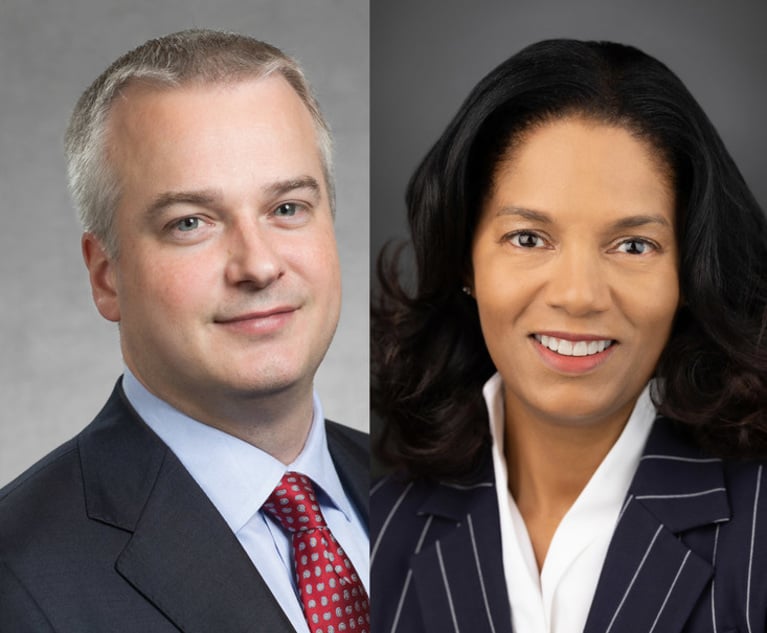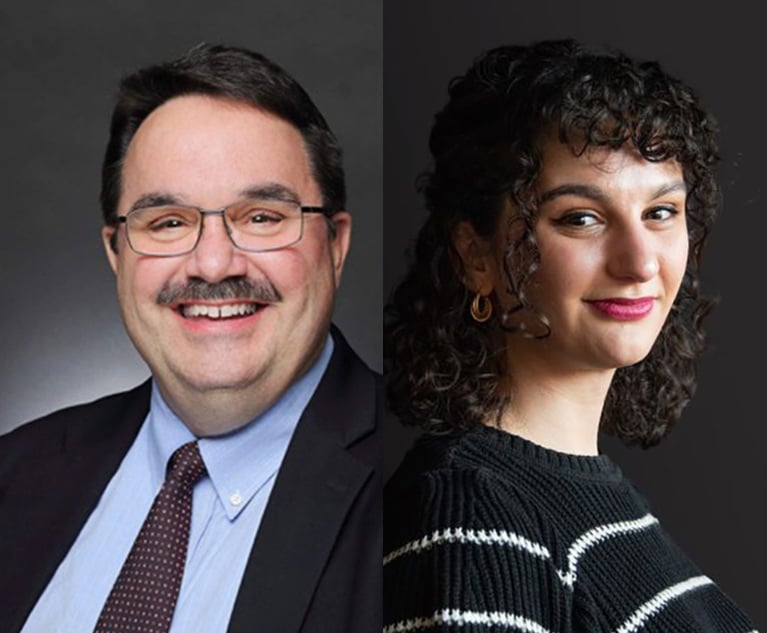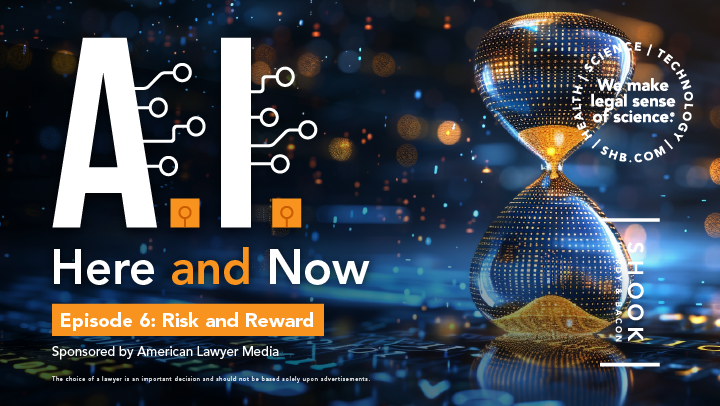A Century-Old SCOTUS Decision Might Not Kill Patent Suits Against 80 Amazon Customers
A Federal Circuit panel sounded hesitant about taking the 113-year-old Kessler doctrine somewhere it hasn't been before.
May 11, 2020 at 06:18 PM
5 minute read
The original version of this story was published on The Recorder
 Amazon offices in Vancouver, British Columbia, Canada. Credit: Mike Scarcella / ALM
Amazon offices in Vancouver, British Columbia, Canada. Credit: Mike Scarcella / ALM
Amazon.com's bid for $6 million in "exceptional case" attorneys fees might have taken a hit last week at the U.S. Court of Appeals for the Federal Circuit.
In fact, it sounded as if a part of PersonalWeb Technologies LLC's sprawling multidistrict litigation against the tech giant and 80 of its customers could even be back on the table.
The question before the appellate court is about the Kessler doctrine, a 1907 Supreme Court decision that barred a patent holder who lost a case against a supplier from then asserting the same patent against the supplier's customers.
PersonalWeb argues that Kessler shouldn't apply because, although it sued Amazon in 2011, it voluntarily dismissed the case before suing Amazon's customers several years later. Amazon argues, and U.S. District Judge Beth Labson Freeman of the Northern District of California agreed, that Kessler does apply because PersonalWeb dismissed its case with prejudice, without Amazon taking a license.
At the May 7 argument before the Federal Circuit in In re PersonalWeb Technologies, the appellate judges sounded unsure.
"Why should we extend Kessler beyond the scope of what its particular holding was?" Judge William Bryson asked Fenwick & West partner J. David Hadden, who represents Amazon.
"I don't think we are extending it, your honor," said Hadden. Amazon "was sued, it litigated for two and a half years, it prevailed, there was a final judgment. At that point Amazon had the right to continue its business, as if it had won at trial."
Amazon may well prevail in the appeal. Bryson and his colleagues had plenty of hostile questions for Hadden's opponent as well. But the tenor of the telephonic argument suggested that the judges don't see the case as an easy call.
PersonalWeb sued Amazon in the U.S. District Court for the Eastern District of Texas in 2011, accusing it of violating its "true name" patents for reliably identifying and accessing files or data. PersonalWeb primarily accused Amazon Web Services' Simple Storage Service (S3) of infringing. PersonalWeb dismissed the case in 2014 with prejudice, without Amazon taking a license.
Then in 2018 PersonalWeb asserted the same family of patents against 80 Amazon Web Services customers such as Airbnb, Reddit and Square that use S3 and other Amazon functionality. The suits were spread out across at least six different jurisdictions, and prompted Amazon to sue for a declaratory judgment of non-infringement in San Jose.
All of the cases were rolled into an MDL before Freeman. She ruled last year that any infringing conduct that predated the Texas judgment was barred by claim preclusion, and that any that came after was barred by the Kessler. Earlier this year she dismissed PersonalWeb's other claims on summary judgment and is now entertaining Amazon's motion for $6.1 million in exceptional case attorneys fees.
PersonalWeb's attorney, Michael Sherman of Stubbs Alderton & Markiles, asked Freeman last month to postpone ruling on fees until the Federal Circuit could rule on the substantive appeals, arguing that the appellate court might see the case differently. Freeman declined.
At first, it didn't sound as if Sherman would get any help from the Federal Circuit. Just seconds into the argument, Judge Evan Wallach of the U.S. Court of Appeals for the Federal Circuit asked him if Amazon was correct that PersonalWeb had litigated the Texas case through claim construction, receiving an unfavorable claim construction order.
Sherman sidestepped the question—or as Wallach put it he "glossed that over." Hadden seemed surprised there was any dispute. "This case was litigated for two and a half years. And after Judge [Leonard] Davis' claim construction order, it was clear PersonalWeb did not have a viable infringement claim."
On rebuttal, Sherman acknowledged there had been a claim construction order, and that it had had "all sorts of twists and turns." But it was not unfavorable, and PersonalWeb dismissed the case over damages issues, not infringement, he insisted.
Bryson also pointed out that under Federal Circuit law, Kessler applies both to findings of infringement and invalidity. "So it does sound like we have adopted the broader view" of how Kessler applies, he told Sherman. "It's not so much whether there's been an adjudication of non-infringement. Rather the question [is] whether there's been an adjudication of non-liability for infringement."
But Bryson and Judge Richard Taranto of the U.S. Court of Appeals for the Federal Circuit also went hard at Hadden. "It appears to be standard law as to issue preclusion that consent judgments don't generate it," Taranto said. So why should Kessler create an end around that?
Hadden said the Federal Circuit has already ruled that Kessler is a necessary supplement to issue and claim preclusion.
"Here's what's troubling me about this case," Bryson said. Amazon is asking that Kessler be adopted in a context where neither issue nor claim preclusion would apply, and "the Supreme Court has demonstrated to us more than a few times that it is not favorably inclined toward patent-specific rules."
Hadden emphasized that Amazon paid nothing when PersonalWeb dismissed the case and reserved all of its rights. "The fact that PersonalWeb gave up its case to avoid a trial should not change the fact that Amazon had obtained the right to continue its business that the Supreme Court gave it in Kessler," he said.
This content has been archived. It is available through our partners, LexisNexis® and Bloomberg Law.
To view this content, please continue to their sites.
Not a Lexis Subscriber?
Subscribe Now
Not a Bloomberg Law Subscriber?
Subscribe Now
NOT FOR REPRINT
© 2024 ALM Global, LLC, All Rights Reserved. Request academic re-use from www.copyright.com. All other uses, submit a request to [email protected]. For more information visit Asset & Logo Licensing.
You Might Like
View All
Litigators of the Week: A Trade Secret Win at the ITC for Viking Over Promising Potential Liver Drug

Law Firms Mentioned
Trending Stories
Who Got The Work
Michael G. Bongiorno, Andrew Scott Dulberg and Elizabeth E. Driscoll from Wilmer Cutler Pickering Hale and Dorr have stepped in to represent Symbotic Inc., an A.I.-enabled technology platform that focuses on increasing supply chain efficiency, and other defendants in a pending shareholder derivative lawsuit. The case, filed Oct. 2 in Massachusetts District Court by the Brown Law Firm on behalf of Stephen Austen, accuses certain officers and directors of misleading investors in regard to Symbotic's potential for margin growth by failing to disclose that the company was not equipped to timely deploy its systems or manage expenses through project delays. The case, assigned to U.S. District Judge Nathaniel M. Gorton, is 1:24-cv-12522, Austen v. Cohen et al.
Who Got The Work
Edmund Polubinski and Marie Killmond of Davis Polk & Wardwell have entered appearances for data platform software development company MongoDB and other defendants in a pending shareholder derivative lawsuit. The action, filed Oct. 7 in New York Southern District Court by the Brown Law Firm, accuses the company's directors and/or officers of falsely expressing confidence in the company’s restructuring of its sales incentive plan and downplaying the severity of decreases in its upfront commitments. The case is 1:24-cv-07594, Roy v. Ittycheria et al.
Who Got The Work
Amy O. Bruchs and Kurt F. Ellison of Michael Best & Friedrich have entered appearances for Epic Systems Corp. in a pending employment discrimination lawsuit. The suit was filed Sept. 7 in Wisconsin Western District Court by Levine Eisberner LLC and Siri & Glimstad on behalf of a project manager who claims that he was wrongfully terminated after applying for a religious exemption to the defendant's COVID-19 vaccine mandate. The case, assigned to U.S. Magistrate Judge Anita Marie Boor, is 3:24-cv-00630, Secker, Nathan v. Epic Systems Corporation.
Who Got The Work
David X. Sullivan, Thomas J. Finn and Gregory A. Hall from McCarter & English have entered appearances for Sunrun Installation Services in a pending civil rights lawsuit. The complaint was filed Sept. 4 in Connecticut District Court by attorney Robert M. Berke on behalf of former employee George Edward Steins, who was arrested and charged with employing an unregistered home improvement salesperson. The complaint alleges that had Sunrun informed the Connecticut Department of Consumer Protection that the plaintiff's employment had ended in 2017 and that he no longer held Sunrun's home improvement contractor license, he would not have been hit with charges, which were dismissed in May 2024. The case, assigned to U.S. District Judge Jeffrey A. Meyer, is 3:24-cv-01423, Steins v. Sunrun, Inc. et al.
Who Got The Work
Greenberg Traurig shareholder Joshua L. Raskin has entered an appearance for boohoo.com UK Ltd. in a pending patent infringement lawsuit. The suit, filed Sept. 3 in Texas Eastern District Court by Rozier Hardt McDonough on behalf of Alto Dynamics, asserts five patents related to an online shopping platform. The case, assigned to U.S. District Judge Rodney Gilstrap, is 2:24-cv-00719, Alto Dynamics, LLC v. boohoo.com UK Limited.
Featured Firms
Law Offices of Gary Martin Hays & Associates, P.C.
(470) 294-1674
Law Offices of Mark E. Salomone
(857) 444-6468
Smith & Hassler
(713) 739-1250








